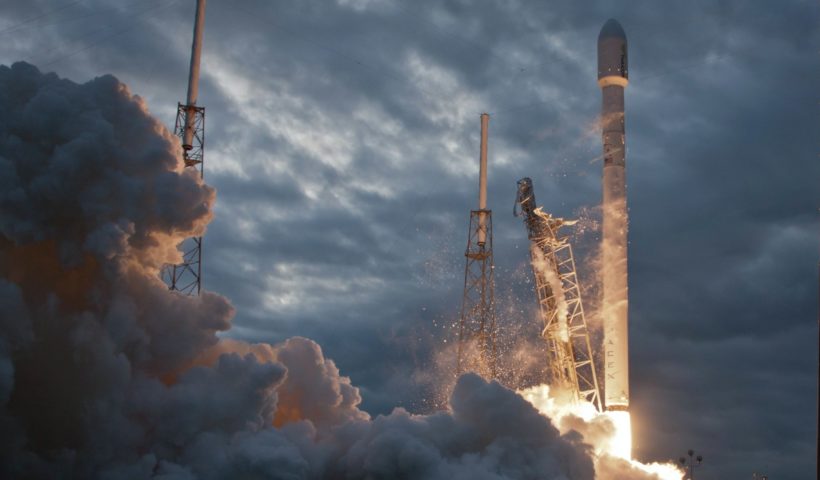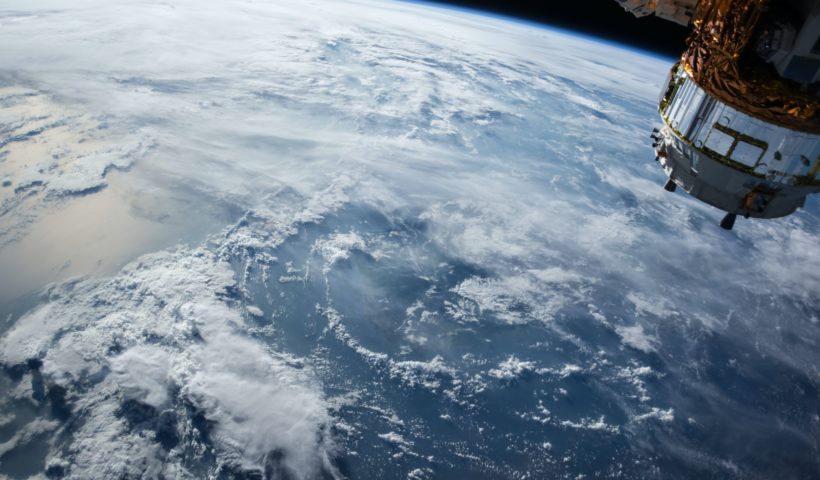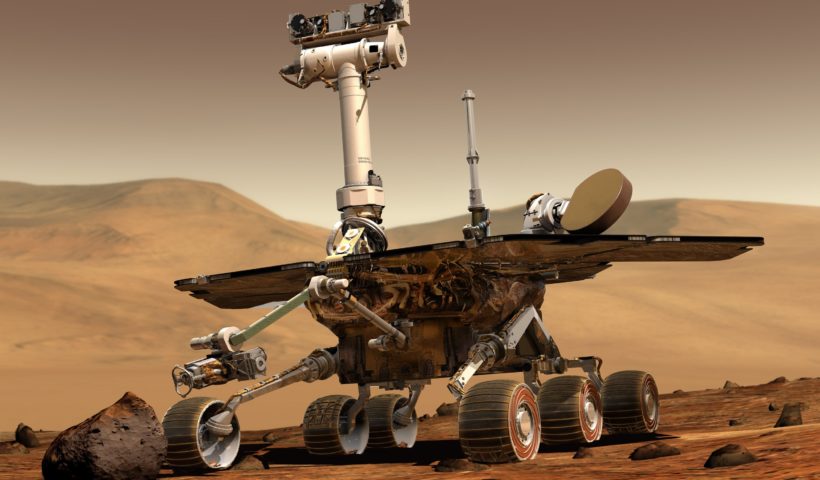Asteroid samples collected by NASA’s OSIRIS-REx not only contain the pristine building blocks for life, but also the salty remains of an ancient water world. The spacecraft was able to help unlock these discoveries because it collected samples directly from the asteroid and carefully preserved them on the way back to Earth. These findings support the idea that asteroids delivered the building blocks of life to our planet early in its history, and may have delivered them elsewhere in the solar system. The success of this mission justifies the development of future sample retrieval missions to other cosmic bodies within our solar system.
View More Returned Asteroid Samples Suggest the Building Blocks for Life are Scattered Across the UniverseTag: Space
Rising Tensions in Low Earth Orbit
Recent intelligence suggests that Russia is developing a space-based nuclear weapon designed to attack America’s extensive satellite network. While details are unknown, the weapon is believed to target United States military surveillance and commercial communications satellites. However, there is no immediate threat to the public, as Russia cannot deploy a nuclear weapon in space without breaking an international treaty and damaging all the satellites in low Earth orbit, including their own. Despite the uncertainty surrounding the development, one thing is becoming clear: space may serve as an international battleground in the near future.
View More Rising Tensions in Low Earth OrbitThe Legacy of NASA’s Ingenuity
After three successful years, the Mars helicopter Ingenuity has just taken its last flight. During a landing, a brief loss of communication with the chopper occurred, only for the vehicle to resume communications the next day with a damaged rotor blade. Being the first helicopter to operate on another planet, Ingenuity is a trailblazer in more ways than one. However, budgetary constraints leave the future of additional Marscopter missions up in the air.
View More The Legacy of NASA’s IngenuityThe Benefits of Scientific Controversy
Timothy Nash recently brought a two-million-year-old fossil on a commercial voyage aboard Virgin Galactic’s V.S.S. Unity. The purpose was to symbolize how far humanity has come, though many scientists disagree with this stunt, stating the venture to be “unethical” and “reckless”. However, the resulting controversy has led to a great deal of public interest in the Cradle of Humankind, benefitting future research ventures through additional economic support.
View More The Benefits of Scientific ControversyWhy Educational Game Design Matters
Kerbal Space Program 2 has just been released, and the scientific community is beyond thrilled. The original Kerbal Space Program is a beloved video game that encourages players to learn rocket science through a complex and realistic physics engine. It tackles a unique design challenge of being educational and fun and has suggested the value of enjoyment as the most necessary aspect of learning.
View More Why Educational Game Design MattersImplications of Interplanetary Translocation
The recent successful landing of NASA’s Perseverance rover on Mars gives us cause to consider the extent to which we are ethically obligated to prevent the “contamination” of other planets with earthly life.
View More Implications of Interplanetary TranslocationProfitable Risk: The Dangers of Consumer Spaceflight and Space Tourism
Society is rapidly approaching an era in which ordinary civilians can purchase tickets to become passengers on space vehicles. Companies worldwide are deep in the development of infrastructure and technology to provide spaceflight for amusement and transportation. These endeavors deviate fundamentally from traditional spaceflight and raise questions about the ethical implications of commercial spaceflight with civilian passengers.
View More Profitable Risk: The Dangers of Consumer Spaceflight and Space TourismGalactic Law and Ownership
11/9/2020 Space exploration is as fascinating as it is frightening. With plans to explore Mars and beyond proposed for upcoming decades, sooner rather than later,…
View More Galactic Law and OwnershipUtilitarian Rights-based Arguments for Planetary Protection
Protecting solar system bodies from contamination by Earth life has been an active research topic since the start of the space race. The prospect of finding and possibly contaminating extraterrestrial life has caused the Committee on Space Research (COSPAR) to set technical standards for planetary protection; planetary protection is essential to preserve humanity’s ability to study other worlds in their natural states, to avoid contamination that would obscure the ability to find life elsewhere, and to ensure that Earth’s biosphere is protected from alien life. Until recently, these utilitarian considerations have been sufficient in addressing all ethical concerns while exploring outer space. However, the prospect of terraforming Mars has sparked a debate over the ethical implications of destroying possible alien organisms. This paper provides a historical background regarding the ethical considerations in human space exploration and argues that the utilitarian considerations provided by the NASA Office of Planetary Protection are sufficient for answering ethical questions regarding planetary protection within the solar system.
View More Utilitarian Rights-based Arguments for Planetary Protection








